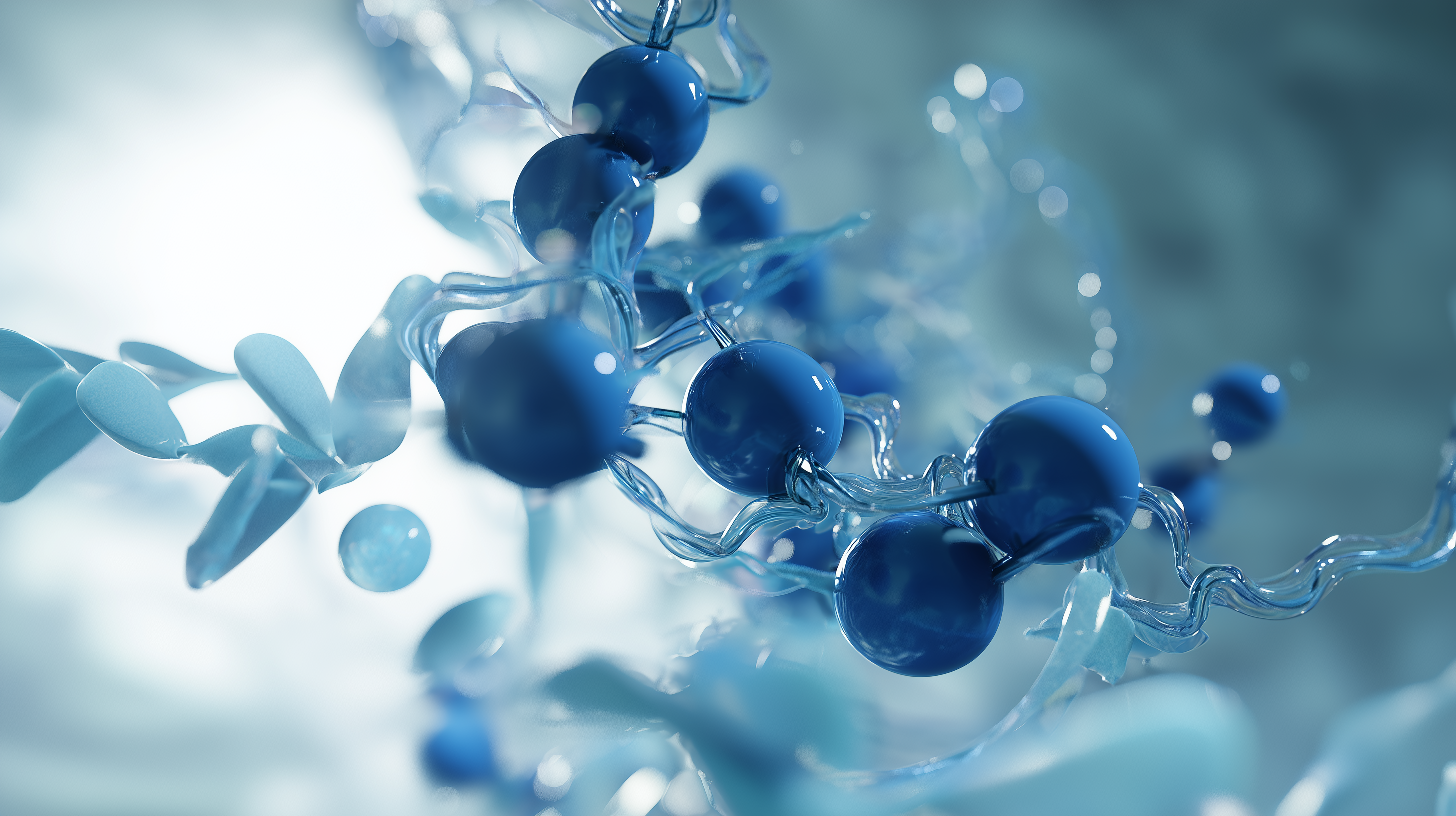The underestimated building block of life
Amino acids are the fundamental building blocks of all proteins and thus the basis of virtually every biological structure in the human body. L-lysine holds a special position among them: It is an essential amino acid , meaning the body cannot synthesize it itself and is entirely dependent on its intake through food.
Despite its fundamental importance, L-lysine often remains overshadowed by better-known amino acids such as leucine or arginine. Yet, at the molecular level, it plays a central role in protein synthesis, tissue regeneration, and the regulation of the immune system .
This article examines the biochemical mechanisms behind the effects of L-lysine – objectively, scientifically, and without any claims of healing.
Biochemical basics of L-lysine
Structure and chemical properties
L-Lysine is a basic, proteinogenic amino acid with a characteristic side chain bearing a terminal amino group. This structure gives it a positive charge at physiological pH and enables electrostatic interactions with acidic amino acids such as glutamate or aspartate.
This property makes L-lysine particularly relevant for protein stability : it supports the folding of polypeptide chains, stabilizes α-helices and β-sheets, and contributes to the correct three-dimensional structure of many enzymes and structural proteins.
Absorption and metabolism
L-lysine is absorbed in the small intestine via sodium-dependent transport mechanisms. In the blood, it is distributed to tissues such as the liver, muscle, and connective tissue via specific amino acid transporters.
L-lysine is stored only in limited quantities; excess amounts are further processed in nitrogen metabolism . In the liver, it can be converted into saccharopine or acetyl-CoA derivatives , which are used in energy metabolism.
L-lysine in protein metabolism
The contribution of L-lysine to protein biosynthesis
During translation —protein synthesis at the ribosomes—L-lysine is incorporated into developing polypeptide chains by its specific tRNA (tRNA-Lys). As a building block of numerous enzymes and structural proteins, it influences muscle tissue, connective tissue, and cell membranes alike.
In a biochemical context, L-lysine represents growth, repair, and structural integrity . It contributes to the formation of functional enzymes, supports cell proliferation , and is involved in the regeneration of damaged tissue —always as part of normal metabolic processes, not as a pharmacological effect.
Interaction with other amino acids
L-Lysine interacts closely with other amino acids:
-
It shares transport and metabolic pathways with arginine , particularly in the urea cycle and in the regulation of nitrogen compounds.
-
With methionine, it forms the substance carnitine via intermediate stages, which plays a role in the transport of fatty acids into the mitochondria.
-
In balance with other amino acids, L-lysine contributes to maintaining the amino acid pool , which is essential for all biosynthetic processes.
An unbalanced amino acid profile can affect protein quality and the efficiency of biosynthesis – an aspect that is particularly important in nutritional research.
L-Lysine and tissue structure – the basis for stability
Key role in collagen formation
One of the most well-known biochemical effects of L-lysine is in collagen biosynthesis . Collagen is the most abundant protein in the human body and forms the structural framework of skin, bones, tendons, and connective tissue .
During collagen maturation, L-lysine is converted into hydroxylysine by the enzyme lysine hydroxylase . This modified form enables the cross-linking of collagen fibers , making the tissue both mechanically stable and elastic.
Scientific findings
Biochemical and cell biological studies describe L-lysine as the limiting amino acid for collagen production. Researchers observed that sufficient availability of L-lysine and related cofactors (e.g., vitamin C, iron) supports hydroxylation and cross-linking processes in fibroblasts.
These mechanisms are of particular interest in the context of tissue repair and structural integrity – without drawing any therapeutic conclusions from them.
Immunological significance of L-lysine
Lysine and cell protection mechanisms
In addition to its structural role, L-lysine also functions in the immune system as a functional component of proteins, enzymes, and transport molecules. It influences the availability of nitrogen and sulfur compounds required for the formation of certain defense proteins .
In addition, L-lysine is involved in the synthesis of antibodies and in the regulation of cell membrane receptors that transmit signals in immune cells.
Research results on immune modulation
Experimental studies have investigated the extent to which L-lysine affects cellular stress responses and immune balance . It is suspected that the amino acid can influence inflammatory mediators via signal transduction pathways .
These hypotheses primarily originate from basic research , such as in vitro analyses or animal models. The results provide valuable clues to biochemical mechanisms , but cannot yet be interpreted as clinically relevant.
L-Lysine in the context of modern nutrition
A balanced protein supply is a prerequisite for the absorption of all essential amino acids. L-lysine is found in high concentrations in animal proteins such as meat, fish, eggs, and dairy products.
Plant sources such as legumes, quinoa, or soy also contain L-lysine, but sometimes in lower concentrations. Lysine absorption can be reduced, especially in a one-sided or highly processed diet , as industrial processing can alter the amino acid structure .
Nutritional science therefore emphasizes the importance of a complete amino acid profile that contains all essential components in the correct ratios. Only in this way can the biological functions of L-lysine in protein, tissue, and the immune system be optimally supported—without the need for supplementation.
Conclusion – L-Lysine as a key building block of biological integrity
L-lysine is far more than a component of protein metabolism. It is a central element of biological structure, regeneration, and immune balance .
-
In protein synthesis, it enables the correct folding and stability of enzymes and structural proteins.
-
In connective tissue, it forms the basis for the cross-linking of collagen fibers and thus for elasticity and strength.
-
In the immune system, it indirectly participates in the synthesis and regulation of defense proteins.
This versatility makes L-lysine a key building block of physiological integrity – an example of how finely tuned biochemical processes form the basis of stability and regeneration in the human body.
Future research is expected to describe more precisely how L-lysine interacts with other nutrients and signaling pathways – for example, in the context of cell communication, metabolic health and tissue homeostasis .
Important facts about L-Lysine at a glance
-
Essential amino acid , not synthesized by the body
-
Component of structural proteins such as collagen
-
Involvement in cell growth, regeneration and immune processes
-
Relevant factor in protein and nitrogen metabolism




